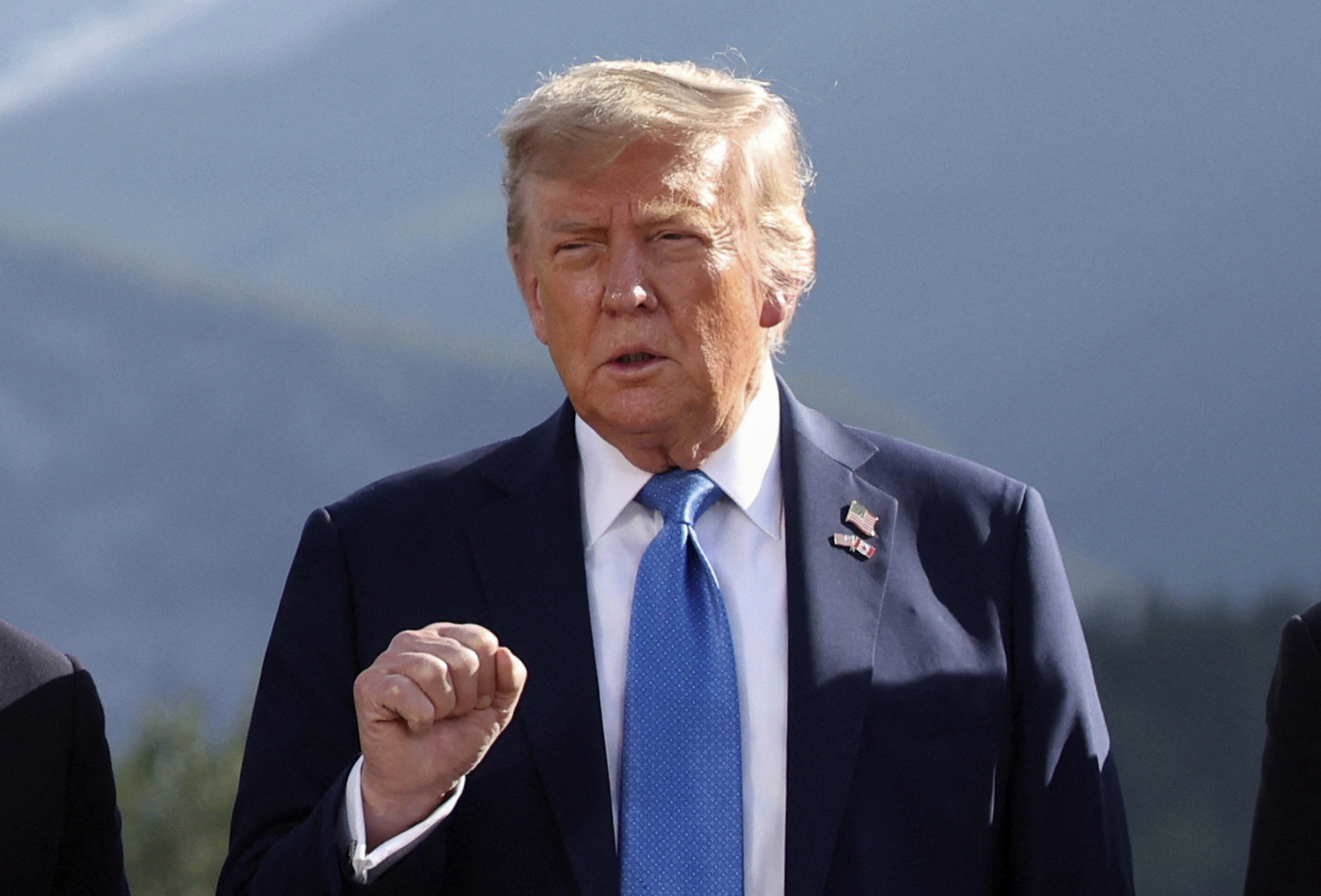The "trade war" gave way to the conflict between Israel and Iran at the beginning of the G7 summit in Kananaskis, a remote and exclusive tourist resort in the Rocky Mountains, turned into the epicenter of world politics for three days. United, the European leaders and Canadian host Mark Carney urged Donald Trump to use his influence over Benjamin Netanyahu to achieve a "de-escalation" and committed to convincing Tehran to return to the negotiating table, with the mediation of Gulf countries.
At the request of President Emmanuel Macron, "premier" Keir Starmer, and Chancellor Friedrich Merz, the Canadian Prime Minister even considered the possibility of a joint statement at the beginning of the summit emphasizing that Iran cannot have nuclear weapons and that Israel has the right to defend itself. However, Donald Trump did not seem willing to immediately sign a statement in favor of "de-escalation."
"I would say that Iran is not winning this war, and they should have talks, and they should do it immediately before it's too late," Trump declared after his bilateral meeting with Mark Carney at the start of the G7 summit. The U.S. President, in his style on social media, anticipated that "peace will come soon" and assured that there were signs that Tehran was seeking a path to dialogue.
According to The Wall Street Journal, Tehran would have directly asked several Arab countries - Oman, Qatar, and Saudi Arabia - to use their ties with the U.S. Administration to ask Israel to stop hostilities. Iran would have offered in return "flexibility" in the negotiations on its nuclear capacity, suspended following Israel's attack last week, according to sources consulted by Reuters.
Donald Trump went even further, stating in an interview with ABC that he is open to the possibility of Vladimir Putin acting as a mediator in the conflict between Israel and Iran (Putin and Erdogan jointly called on Monday for a "cessation of hostilities"). However, European allies plan to use the Canadian summit to impose new sanctions on Russia for the unsuccessful ceasefire attempt in Ukraine, taking advantage of the announced visit to the summit by President Zelenski on Tuesday.
The U.S. President, who descended from Air Force One wearing a baseball cap with "Make American Great Again" written on it, nevertheless did not miss the opportunity to criticize Canada's role in the exclusion of Russia from the group of the wealthiest countries.
"The G7 used to be the G8, but Barack Obama and someone named Trudeau didn't want to have Russia," stated Trump (ignoring the fact that the Prime Minister of Canada in 2014, when Russia was "expelled" due to the Crimea invasion, was not Justin Trudeau but Stephen Harper). "And I would say it was a mistake," added the U.S. President, "because we wouldn't have a war now if Russia were in, and we wouldn't have a war now if Trump had been president four years ago."
The President of the European Commission, Ursula von der Leyen, distanced herself at the summit's outset from Trump's "trade war" and called for "avoiding protectionism." Von der Leyen also stated that she had spoken by phone with Netanyahu on Sunday and reminded him that "diplomacy is the best long-term solution".
"Premier" Keir Starmer stated early Monday that there was "consensus in favor of de-escalation" of the conflict between Israel and Iran, but acknowledged that there was work to be done and it was not clear how it would materialize within the G7 context. French President Emmanuel Macron, who had just expressed "European solidarity" with Greenland against Trump's annexation threats, tried to orchestrate the European response, leveraging his experience in past summits.
Macron himself made contradictory gestures in the last hours. "Iranian nuclear proliferation constitutes a threat to Israel and to ourselves," he declared during his visit to Greenland, where he also stated that "the destabilization of the region falls on Iran."
Netanyahu accused Macron of "leading a crusade against the state of Israel" (due to his delayed willingness to recognize the state of Palestine once again), which led to a new condemnation from the Israeli government on Monday. This time, it was due to the French government's veto of five major Israeli arms manufacturers who intended to showcase their equipment at the International Aeronautics and Space Show in Le Bourget this week. "Sometimes it is difficult to follow the French position on Israel regarding the various issues that concern us," stated the Israeli ambassador in Paris, Joshua Zarka, after publicly expressing his protest.
All eyes, however, were on Canadian host Mark Carney on Monday, making his debut in an international forum three months after succeeding Justin Trudeau as leader of the Liberal Party and six weeks after his electoral victory. The former Governor of the Bank of Canada and the Bank of England has the challenging task of strengthening ties with Europe while not upsetting his irascible neighbor.
Carney treated Trump to a tour of the Kananaskis Country Club golf course, with the imposing Rocky Mountains in the background, and planned the bilateral meeting as a form of preferential treatment to smooth things over from the start, despite his guest's insistence on defining himself as "pro-tariffs."
The Foreign Ministers of France, Germany, and the United Kingdom contacted Iranian Foreign Minister Abbas Araghchi throughout the day to persuade him to return to the negotiating table and commit to ending the uranium enrichment program.
Araghchi responded by arguing that if President Trump truly wants a solution to the conflict, he must demand an immediate halt to the "military aggression" from Israel. "All that is needed is a call from Washington to Netanyahu," emphasized the Iranian minister. "That could pave the way for a return to diplomacy."
